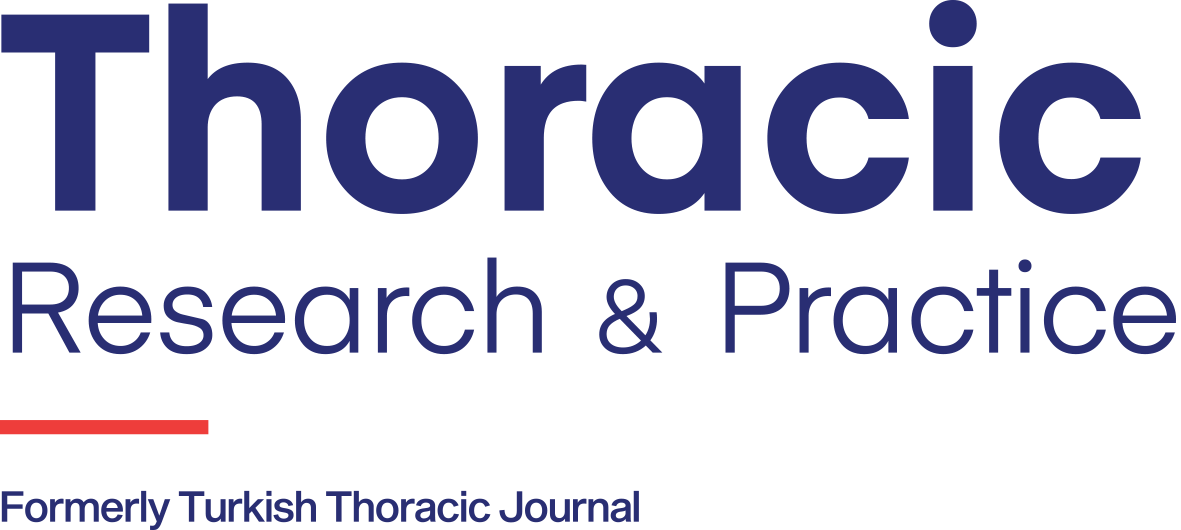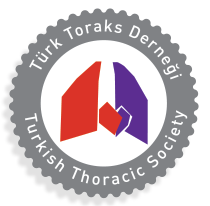Abstract
Abstract
The aim of this study was to evaluate the validity of maximum oxygen consumption for predicting postoperative cardiopulmonary complications in lung resection candidates with limited pulmonary functions. Between November 2001-June 2003, 112 lung resections were performed at our clinic. Twenty-five patients with limited pulmonary functions (pFEV1<60%) underwent exercise test before lung resection for lung cancer. Maximum oxygen consumption values were determined preoperatively. The patients were divided into two groups. Group A (n=7) included patients with postoperative cardiopulmonary complications and group B (n=18) consisted of patients with no complications. VO2max, FEV1, FVC, MVV, PaO2, PaCO2 values were compared between two groups. Seven (28%) of 25 patients had cardiopulmonary complications in the early postoperative period (first 30 days). There was no significant difference between the pulmonary functions and blood gases values between group A and B. However there was a significant difference between maximal oxygen consumption values for two groups. In group A and group B, VO2max values were 12.9±2.2, and 17.8±3.8 respectively (p<0.05). VO2max is the best predictor to determine postoperative cardiopulmonary complications for lung resection candidates with limited pulmonary function. Exercise test is the optimal method to determine the eligible patients for lung resection in high risk group identified by pulmonary function tests.



